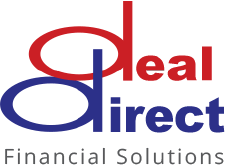When long-term home improvements and unforeseen expenses start adding up, high-interest credit cards can quickly spiral into an unmanageable burden. For one proactive couple in their early 40s from the North West of England, both working in professional roles, a debt consolidation mortgage offered the ideal way to reassert financial control, simplify their repayments, and build toward a debt-free future.
Customer Overview
This couple, both in their early 40s and living in the North West, bought their home three years ago and immediately began significant renovations. With four major projects completed and a car replacement necessary along the way, credit card balances grew steadily. Despite managing all their accounts without missed payments, the high combined interest rates and minimal balance reductions led them to seek a smarter solution, such as a mortgage, to streamline their finances.
The Challenge: High-Interest Credit Card Debt and Limited Remortgage Options
Initially, the couple attempted to address their debts during a previous remortgage. However, the property valuation came in lower than expected, restricting how much equity could be released. The result: outstanding credit card debt totalling £33,000 remained untouched, spread across multiple high-interest cards with rates ranging from 32% to 35%.
Monthly repayments of £988 toward these credit cards were eating into their disposable income, without making a meaningful dent in the balances. Left unchecked, these debts could still be hanging over them in five years’ time, potentially impacting future mortgage flexibility.
The Solution: A Secured Loan for Debt Consolidation
With remortgage equity limited, our advisers recommended a secured loan as a more strategic approach. The couple decided to consolidate £33,000 of credit card debt into a 5-year fixed-rate secured loan with a 20-year term. Structuring this loan to run alongside their existing mortgage made the monthly bills easier to manage and understand, serving effectively as a debt consolidation tool.
Key benefits of this secured debt consolidation loan included:
- Reducing their total monthly payments by £672.11
- Improving credit utilisation ratios and overall credit score potential
- Creating disposable income that could be redirected toward overpayment of remaining debts
- Maintaining a favourable loan-to-value ratio for optimal interest rates
Cost Implications and Long-Term Planning
It’s important to understand that consolidating unsecured debts into a mortgage or loan secured against your home means those debts are now tied to an asset — your property. While this solution decreased monthly outgoings, the total repayable over the full term was estimated at approximately £87,450.
Nonetheless, this financial move wasn’t driven by necessity but by foresight. The couple anticipated the long-term cost but valued the benefits of short-term breathing room and long-term financial agility in their mortgage strategy.
The Result: More Breathing Room and a Clearer Future
By cutting over £670 from their monthly expenses, this couple is now in a stronger position to:
- Pay down remaining debts faster through overpayments
- Grow their savings and increase financial resilience
- Maintain flexibility when their mortgage comes up for renewal
They made it clear that this move was about prevention — not crisis management. They had no plans to add further borrowing and were focused on simplifying their finances and working toward becoming debt-free.
“We weren’t struggling, but our payments weren’t making a dent. This loan gives us real breathing space. Now we can focus on clearing everything proactively without feeling overwhelmed.” — Homeowner, North West England
FAQs: Debt Consolidation Mortgages
How much can I save monthly by consolidating credit card debts into a mortgage?
In this case, the couple saved approximately £672.11 per month by consolidating £33,000 of credit card debt into a lower-rate secured loan. Savings depend on current interest rates, debt amounts, and repayment terms.
Can you remortgage to fund home improvements?
Yes, you can remortgage to release equity for home improvements. However, your property’s valuation must support the release. In this case, a lower valuation restricted remortgage flexibility, so a secured loan was used instead to avoid debt consolidation through traditional means.
Does remortgaging or taking a secured loan affect my credit score?
Initially, there may be a small dip due to product application checks. However, paying off high-interest debts and lowering credit utilisation often improves your score over time.
What documents are required for a remortgage or secured loan application?
Typically, you’ll need:
- Proof of identity and address
- Recent payslips or income documents
- Existing mortgage and debt details
- Bank statements
A broker can guide you through each step efficiently.
Can I repay a fixed-rate mortgage or secured loan early without penalties?
Many fixed-rate products include early repayment charges (ERCs). However, some allow overpayments up to a limit each year. Always check the product’s Key Facts Illustration or ask your adviser.
Take Control of Your Finances Today
If you’re juggling high-interest debts and looking for smarter ways to manage repayments, a debt consolidation mortgage or secured loan might provide the relief and flexibility you need. Our expert advisers help you evaluate your options carefully — always with transparency around costs, benefits, and long-term implications.
Contact us today to explore your options and take the first step toward a simpler, more secure financial future.
Ready to apply or see your best options?
Find your best deals online in minutes or request a no-obligation callback from one of our expert advisors to talk through your options or just get honest advice.






